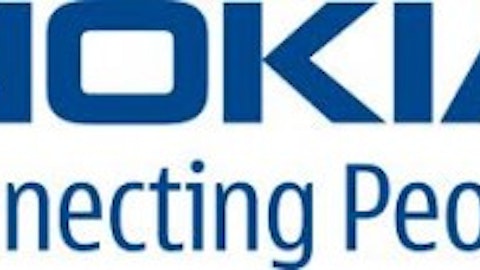
Bill Gates’ annual letter covers a great many topics, from eradicating polio in Nigeria to improving K-12 education in the U.S., but does not touch on any hot stock tips. And why would it, with Gates more interested in investing in health and welfare than the next Apple Inc. (NASDAQ:AAPL)? But, if you boil down the key theme throughout the letter, it reveals a lesson that every investor should apply — but few currently do.
Take noteI have been struck again and again by how important measurement is to improving the human condition. You can achieve amazing progress if you set a clear goal and find a measure that will drive progress toward that goal. … This may seem pretty basic, but it is amazing to me how often it is not done and how hard it is to get right.
In terms of investing, the questions this brings up include:
- Do you actually measure your investment performance?
- Do you measure it versus a benchmark?
- Do you track how well your sold securities perform after you ditch them?
- Do you note why you bought something?
- Do you note what factors will make you sell something?
Keeping track of the decisions that influence to your investing performance is the only way you can know what thoughts and actions led to mistakes and what led to success. If you don’t mark down the reasoning for each decision, you are likely to succumb to the multitude of biases that our brains love to use to make decisions simpler, no matter how wrong those decisions are. If you don’t track your investing, you are likely to wildly take actions in an already wild market, making it more of a gamble than it need be.
A personal example
In early March last year, I bought shares of Amazon.com, Inc. (NASDAQ:AMZN) around $180, convinced that their dominance in a multitude of products and services would power it past its then market value of about $80 billion. After the share price jumped to roughly $230 following Amazon’s first quarter of 2012, making the company worth over $100 billion, I sold the stock, but failed to note exactly why I sold it, beyond what I can remember about being frightened from its limitless P/E ratio.
Since then, Amazon’s share price has risen 16%, more than double the market’s return, and the company is valued at $120 billion. Beyond missing out on the market-beating return, I missed out on a chance to fully develop an investing lesson for myself by not noting exactly why I sold it. This opens me up to making the same mistake, and missing those higher investment returns again.
Like Gates’ plan of “measuring results to get feedback and refine the approach continually” in order to cure the world of broad ills, the same plan makes sense for individual investors to cure them of their repeated mistakes. Will avoiding past mistakes mean that each market move you make will be golden? Of course not, but it can help mitigate the dramatic mistakes that weigh down your portfolio.
Extending the lesson
This same lesson doesn’t just end at your own actions. Use it to evaluate the performance of the companies you invest in, as well. Is a company measuring the right metrics to outperform its peers? Several companies measure a variety of things not required by the SEC. For example, Groupon Inc (NASDAQ:GRPN) reports gross billings per average active customer. Since the third quarter of 2011, this figure has fallen from $189 to $149, but given Groupon’s evolving business that has a new focus on physical goods, gross billings per customer might not be the best thing to measure with the different margins associated with the new segment.
Or, take Netflix, Inc. (NASDAQ:NFLX) . Netflix reports both streaming subscriptions and DVD subscriptions, good things to track for the company, but with investments into new original content, like the reported $100 million for House of Cards, investors might want streaming figures from specific shows. While the company will be measuring such things internally, it might fear that releasing such figures would spook investors who might try to measure the relatively new medium, which drops an entire new season of programming at once, versus the traditional television broadcasting figures. Original content is a long-term investment that avoids licensing costs, so measuring upfront viewers might not capture the entire value as it can be streamed whenever a subscriber wants. However, traditional television’s John Landgraf, president of FX Network, has often complained about Netflix’s lack of streaming disclosure, saying, “They like the fact that they don’t have to have a report card. If you want to be a better student, get a grade. Find out how you’re doing.”
It starts with measuring
Landgraf has the main idea, just as Gates: only through measurement can you improve. Netflix might internally measure streaming statistics, but it might be better for investors not to know the figures due to the market’s stress on short-term results. That’s up for investors to decide.
What investors can do for themselves, though, is improve through measuring their own actions. So take a note from Gates, and take notes on your progress.
The article A Crucial Investing Tip From Bill Gates originally appeared on Fool.com and is written by Dan Newman.
Fool contributor Dan Newman has no position in any stocks mentioned. The Motley Fool recommends Amazon.com, Apple, and Netflix. The Motley Fool owns shares of Amazon.com, Apple, and Netflix.
Copyright © 1995 – 2013 The Motley Fool, LLC. All rights reserved. The Motley Fool has a disclosure policy.





